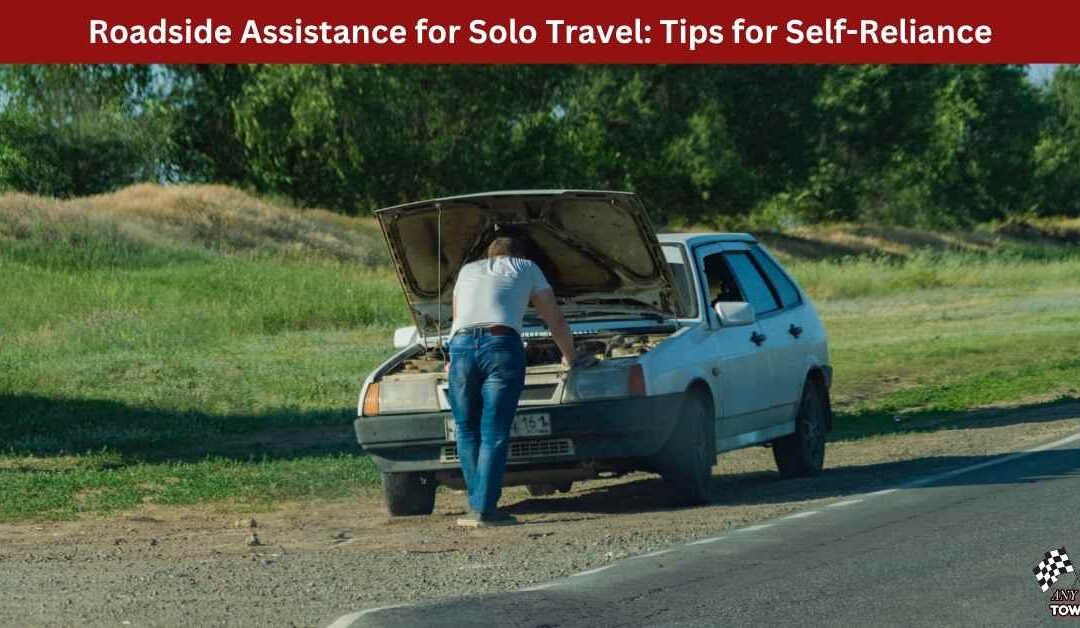Solo travel is one of the most freeing experiences you can have—just you, your car, and an open road filled with possibility. But as exciting as it is, there’s always that little voice in the back of your mind: What if something goes wrong and I’m alone out there?
Whether you’re on a weekend escape through the Grampians or tackling a long-haul trip across Victoria, being prepared for roadside emergencies is a must—especially when you’re flying solo. We’ve helped plenty of lone travellers over the years, and if there’s one thing we’ve learned, it’s this: self-reliance starts before the engine does.
Know Your Vehicle Like a Travel Buddy
You don’t need to be a mechanic, but it helps to get familiar with your car beyond just the colour and fuel type. Take the time to learn the basics: how to check oil, where your spare tyre is, how to top up coolant, and what all those little warning lights on your dash actually mean.
One of our clients, Lisa, was on a solo drive to the coast when her tyre pressure light came on. Because she’d learned to check her tyres properly before a trip, she caught a slow leak early. She rolled into a nearby servo, filled it up, and made it to her campsite without needing to call us—but just in case, she had our number saved in her phone.
Build a No-Nonsense Emergency Kit
A well-packed emergency kit is your best roadside companion. Here’s what we always recommend solo drivers keep in the car:
- Phone charger and power bank
- Torch (with extra batteries)
- Jumper leads
- Reflective vest and warning triangle
- Tyre pressure gauge and portable inflator
- First aid kit
- Bottled water and snacks
- Printed contact list (in case your phone dies)
- A blanket or towel (trust us, these come in handy)
Bonus tip: Keep everything in a weatherproof container in your boot so it’s easy to grab when you need it.
Don’t Skip the Pre-Trip Checks
It might feel like overkill, but doing a simple pre-trip check before every long solo drive can save you a heap of drama. Just 10 minutes to check your tyre pressure, fluid levels, headlights, and that the spare tyre isn’t flat. Also, make sure your roadside assistance plan is active (and if you don’t have one, it’s worth signing up—some companies even offer same-day coverage).
We once got a call from a solo traveller whose car broke down 20km outside Bendigo. She had reception and coverage but didn’t realise her roadside membership had expired. Fortunately, we were still able to help her as a one-off, but it ended up being more expensive than it needed to be—and it added unnecessary stress to her trip.
Make Your Location Your Friend
If you’re driving alone through unfamiliar areas, it helps to keep tabs on where you are. Most smartphones let you drop a location pin—even when you’re offline. And if something does go wrong, knowing your nearest road sign, landmark, or intersection can help us get to you faster.
We always recommend letting a friend or family member know your planned route and expected arrival time. It’s a simple safety measure, and it takes just a minute to shoot a quick text when you stop for fuel or a snack.
When Trouble Hits: Stay Calm and Safe
If your car breaks down and you’re alone, the most important thing to do is stay calm and assess your surroundings. If you’re on a freeway or busy road, try to pull over as far to the left as possible, turn on your hazard lights, and stay inside the car if it’s safer than standing outside.
Use your phone to call roadside assistance, and if you’re somewhere isolated or you feel unsafe, don’t hesitate to call local police or a nearby service station. One of our drivers once helped a solo traveller near Warburton who broke down late at night. She stayed inside the locked car and called us immediately. We got to her in under 30 minutes and towed her to a local mechanic. It wasn’t ideal, but she stayed safe—and that’s what matters.
There’s a lot to love about hitting the road solo: the freedom, the quiet, the adventure. But preparation is what turns a good trip into a great one—and helps you stay cool if things take a turn. With the right mindset and a few simple precautions, solo travel doesn’t have to feel risky—it can feel empowering.
So the next time you’re heading out on your own, do the checks, pack the essentials, and keep your roadside assistance contact saved and ready. You’ve got this—and if you need a hand, we’re only a phone call away.
Now Any Car Towing is available in Berwick, Victoria 3806.
Contact Us
Any Car Towing
10 Silvergum Pl, Cranbourne VIC 3977
0413 176 223


Recent Comments